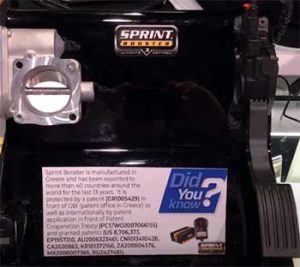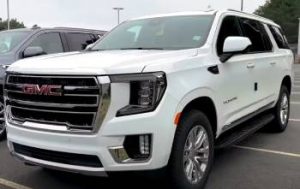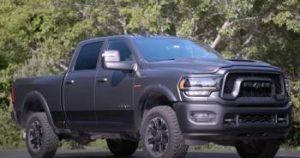The age of sedans and hatchbacks might be waning, but the enthusiasm for Sports Utility Vehicles (SUVs) has never been higher. Two standout models in the market are the Jeep Grand Cherokee and the Toyota Highlander.
Both vehicles are at the top of their game, but how do they stack up against each other? If you’re in the market for a new SUV, this is the article for you. Let’s dive deep, shall we?
A Brief Comparison Table
| Feature | Jeep Grand Cherokee | Toyota Highlander |
| Base Engine | V6 (varies by model) | 3.5L V6 |
| Hybrid Option | No | Yes |
| Seating Capacity | 5 | 7-8 (depending on configuration) |
| Infotainment Screen Size | 8.4 inches (standard) | 8 inches (standard) |
| Cargo Space (Behind 2nd Row) | Approx. 36.3 cu.ft. | Approx. 48.4 cu.ft. |
| Off-Roading Capability | Excellent | Limited |
| Fuel Efficiency (Combined) | 18-21 mpg (depending on the engine) | 21-29 mpg (standard vs. hybrid) |
| Starting Price | Approx. $34,000 (can vary) | Approx. $34,810 (can vary) |
| Top Safety Features | Blind-spot monitoring, Adaptive cruise control | Lane departure alert, Adaptive cruise control |
| Towing Capacity | Up to 7,200 lbs. (with V8 engine) | Up to 5,000 lbs. |
The Heritage: Jeep Grand Cherokee
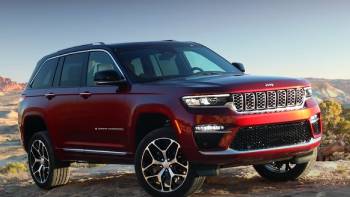
Pros:
- Rugged Performance:
The Jeep Grand Cherokee remains true to Jeep’s off-roading legacy. With its Quadra-Lift Air Suspension and Selec-Terrain Traction Management System, it can conquer terrains that the Highlander can’t dream of.
- Engine Variety:
From fuel-efficient V6s to the monstrous V8s, there’s a Grand Cherokee for everyone.
- Luxury Touches:
Higher trim levels of the Grand Cherokee can rival some luxury SUVs, with heated leather seats, a panoramic sunroof, and top-notch infotainment.
Cons:
- Fuel Efficiency:
It’s not its strongest suit, especially with the larger engines.
- Higher Base Price:
You might find the starting price of the Grand Cherokee a tad more than its Highlander counterpart.
Read More: About Comparison Between Mercedes GLE 450 and GLE 350
The Efficient Behemoth: Toyota Highlander
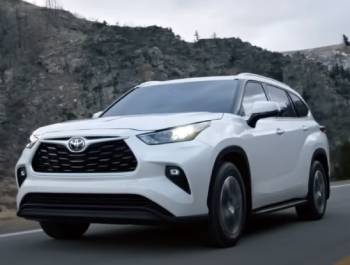
Pros:
- Fuel Efficiency:
Toyota’s known for it. The Highlander, even with its size, offers commendable mileage, especially with its hybrid options.
- Spacious Interiors:
The Highlander comfortably seats up to eight people, making it perfect for families and group trips.
- Reliability:
Toyota’s reputation shines through. The Highlander is often touted as one of the most reliable SUVs in the market.
Cons:
- Not for Off-Roading:
While it handles city roads and highways with grace, rugged terrains aren’t its playground.
- Conservative Design:
For those looking for an SUV that turns heads, the Highlander’s design is a bit on the safe side.
Head to Head: Which is for Whom?
If you’re someone who enjoys the occasional adventure and is looking for an SUV that can handle both city streets and challenging terrains, the Grand Cherokee might be your best bet. On the other hand, if you prioritize fuel efficiency, reliability, and space, the Highlander would serve you well.
Key Differences Between Jeep Grand Cherokee and Toyota Highlander
The SUV market is swarming with options, each promising to cater to different needs. Among these, two powerhouses stand out – the rugged Jeep Grand Cherokee and the family-friendly Toyota Highlander. Let’s dive into their key differences, shall we?
- Heritage and Brand Image
Jeep Grand Cherokee:
The Jeep brand carries a legacy of off-road prowess. Originally designed for military use during WWII, Jeep’s DNA is rooted in adventure. The Grand Cherokee, being one of its flagship models, is built for those who enjoy an occasional off-roading escapade while still craving luxury touches.
Toyota Highlander:
Toyota, a brand that stands as a synonym for reliability, has designed the Highlander with families in mind. It combines space, comfort, and dependability, making it a popular choice among suburban families and those who prioritize safety and fuel efficiency.
- Performance and Capabilities
Jeep Grand Cherokee:
The Grand Cherokee offers a variety of engines, ranging from fuel-efficient V6s to powerful V8s, suitable for different driving needs. Its advanced 4×4 systems, like the Quadra-Trac and Quadra-Drive, make it a superior choice for off-roading.
Toyota Highlander:
The Highlander shines in the city and on highways. While it may not match the Grand Cherokee’s off-road abilities, its smoother ride quality, combined with a hybrid engine option, offers impressive fuel efficiency and low emissions.
- Interior and Comfort
Jeep Grand Cherokee:
The Grand Cherokee offers a luxurious touch, especially in its higher trims like the Summit, Overland, and Trackhawk. You’ll find soft-touch materials, leather seats, advanced infotainment systems, and an overall premium feel.
Toyota Highlander:
The Highlander might not boast the luxury touches of the Grand Cherokee, but it does offer spaciousness. With three rows of seating, it comfortably fits up to eight passengers, ideal for larger families. The infotainment is user-friendly, and the cabin is designed for practicality.
- Safety Features
Jeep Grand Cherokee:
Jeep doesn’t skimp on safety. The Grand Cherokee is equipped with a plethora of safety features, including adaptive cruise control, blind-spot monitoring, and forward-collision warning, among others.
Toyota Highlander:
Toyota’s commitment to safety shines through in the Highlander. It’s packed with Toyota’s Safety Sense suite, which includes lane departure alert, adaptive cruise control, pre-collision system with pedestrian detection, and more.
- Design Aesthetics
Jeep Grand Cherokee:
The design is muscular and assertive. With its iconic seven-slat grille and a commanding road presence, the Grand Cherokee is unmistakably a Jeep, giving a nod to its rugged heritage.
Toyota Highlander:
The Highlander sports a conservative yet modern design. It’s sleek, aerodynamic, and has a touch of elegance. It might not have the aggressive stance of the Grand Cherokee, but its design resonates with its target audience.
- Price Point and Resale Value
Jeep Grand Cherokee:
The Grand Cherokee’s starting price might be a bit steeper, especially when considering its high-end trims. However, its brand reputation and unique offerings do justify the cost. Resale values are decent but may not match those of the Highlander.
Toyota Highlander:
The Highlander often wins points for its value proposition. The initial price point, combined with its reputation for reliability, leads to excellent resale values, making it a great investment for the long term.
Also Read: Differences Between Carli And BDS Suspension.
Frequently Asked Questions (FAQs)
While both vehicles offer spacious interiors, the Jeep Grand Cherokee is generally perceived as bulkier due to its design. However, in terms of seating, the Highlander can accommodate more passengers with its three-row seating.
Several SUVs compete with the Grand Cherokee, including the Ford Explorer, Honda Pilot, and the Land Rover Discovery, among others.
The Chevrolet Traverse would be a close equivalent to the Toyota Highlander in terms of size and utility.
While “most reliable” can be subjective, the Highlander is consistently ranked among the top in reliability ratings by several automotive publications.
No, the Jeep Grand Cherokee is considered a midsize SUV.
The Jeep Grand Cherokee falls into the midsize SUV category, bridging the gap between small crossovers and larger, full-size SUVs.
In Conclusion
Choosing between the Grand Cherokee and the Highlander boils down to individual needs. Both vehicles are excellent in their rights. Whether it’s the raw power and luxury of the Jeep or the fuel-efficient reliability of the Toyota, you’re making a great choice. Remember, it’s not about which SUV is better—it’s about which is better for you.
No matter your choice, both the Grand Cherokee and the Highlander are stellar in their own right. The decision lies in what you prioritize more in your next SUV. Safe travels!

